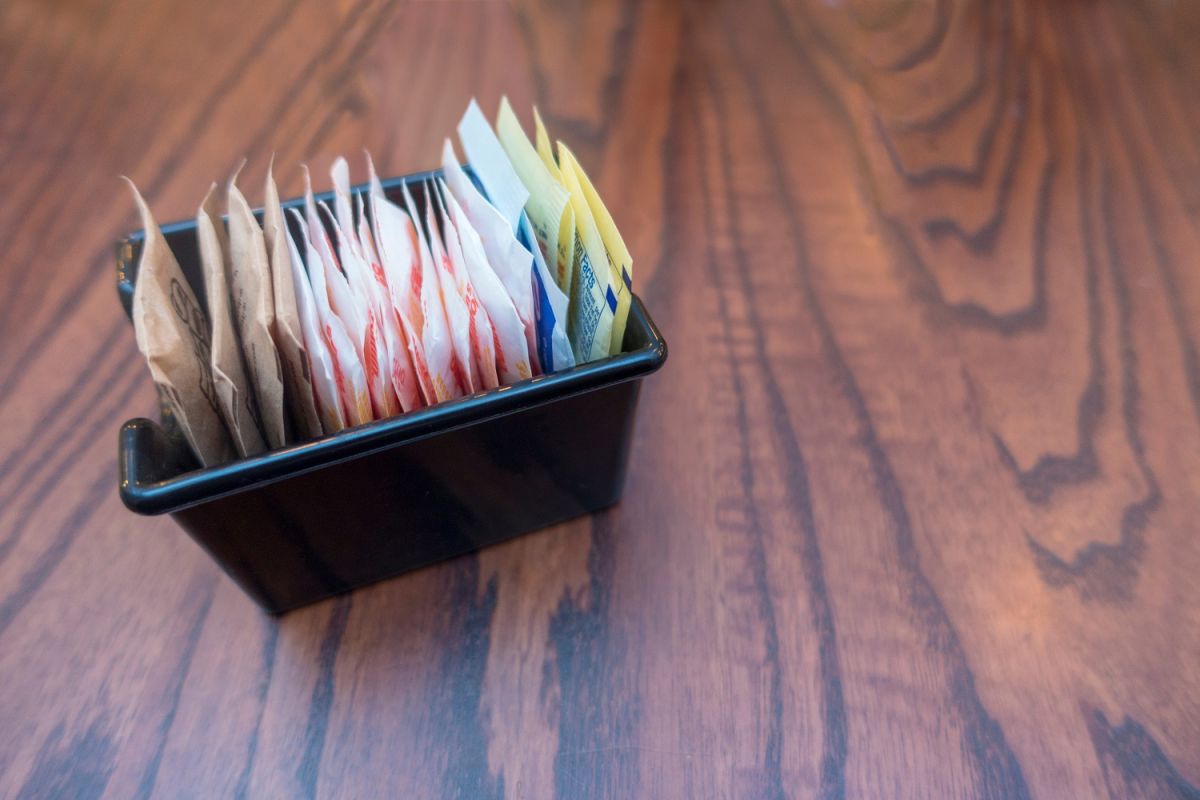Consuming a common sweetener called sucralose forms a “genotoxic” substance that breaks down DNA, according to a new study. The chemical is also found in trace amounts in the sweetener.
The findings raise questions about whether the sweetener may contribute to health problems.
Sucralose is 600 times sweeter than sugar and can be found in many baked goods, soft drinks, gum, gelatin, and frozen dairy desserts. A common brand name that sucralose is sold under is Splenda.
Researchers at the University of North Carolina found that after sucralose consumption, a compound called sucralose-6-acetate is produced in the intestine.
The study found that the compound disrupted DNA in cells that were exposed to the chemical,” said study author Susan Schiffman, a professor in the department of biomedical engineering at North Carolina State University.
“Our new work establishes that sucralose-6-acetate is genotoxic. We also discovered that trace amounts of sucralose-6-acetate can be found in commercial sucralose, even before it is consumed and metabolized,” Schiffman says.
Negative effects of chemicals in sucralose
Negative response in gene activity
Researchers at North Carolina State University found that intestinal cells exposed to sucralose-6-acetate had increased activity in genes linked to oxidative stress, inflammation, and carcinogenicity.
leaky gut
Previous studies have found that sucralose and sucralose-6-acetate are chemicals that cause leaky gut. “A leaky gut is problematic, because it means things that would normally pass out of the body in the stool are instead leaking out of the intestine and absorbed into the bloodstream,” explains Schiffman.
Schiffman suggests people avoid products that contain sucralose. “It’s something you shouldn’t be eating,” says the researcher.
According to Schiffman, the trace amounts of sucralose-6-acetate in a single daily sucralose-sweetened beverage exceed the threshold of toxicological concern for all genotoxic substances of 0.15 micrograms per person per day set by the European Food Safety Authority.
This is even without adding up the amount of sucralose-6-acetate that is produced after people consume sucralose.
Keep reading:
The WHO advises against consuming sugar-free sweeteners to lose weight
No-calorie sweetener may increase risk of stroke, study finds
8 ways to follow a sugar-free diet
